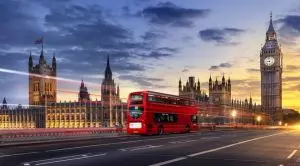 The Chief Executive Officer of the UK Gambling Commission (UKGC) hinted that the watchdog is seeking for appropriate bidders for the next UK National Lottery licence.
The Chief Executive Officer of the UK Gambling Commission (UKGC) hinted that the watchdog is seeking for appropriate bidders for the next UK National Lottery licence.
Neil McArthur, the CEO of the UKGC, explained that the way consumers engage with the lottery is changing towards a more media-, tech- and personal device-based approach. This is why the watchdog is trying to find out what finance and tech providers find interesting. According to McArthur, there is a “significant untapped potential” in the National Lottery franchise.
In addition, the UKGC CEO explained that new technology could be a game-changer for people who play the lottery, especially for the ones who face the consequences of their problem gambling behaviour.
The main regulatory body for the UK gambling industry is set to open bidding for a new operating license that will allow the one who owns it to run the National Lottery franchise in 2019. The UKGC has shared hopes that different bidders will be attracted after it failed to make some of the previous campaigns interesting to a wide number of competitors. The current license is set to expire in 2023.
The Commission is expected to announce an initial market consultation for the fourth National Lottery license competition at the World Lottery Summit.
Camelot Facing Some Turbulence during Tenure
 For the time being, the National Lottery’s gross gambling yield is estimated to approximately £3.3 billion, which makes it the most valuable national franchises which could be awarded to private companies. On an international level, it is the fourth largest lottery worldwide.
For the time being, the National Lottery’s gross gambling yield is estimated to approximately £3.3 billion, which makes it the most valuable national franchises which could be awarded to private companies. On an international level, it is the fourth largest lottery worldwide.
The new license that is to be provided to the top bidder will mark the first time when the UKGC run the competition since the merger with the National Lottery Commission five years ago after which it consumed its functions.
Since it started operation in 1994, the National Lottery has been run by Camelot, which is owned by Ontario Teachers’ Pension Plan.
However, it was not an easy ride for Camelot so far. A few months ago, in August 2018, the company suffered a £1.15-million fine which was imposed by the UKGC for failures including direct debit errors and a mobile app glitch.
A year earlier, in 2016, Camelot faced an even larger fine amounting to £3 million after a prize for an allegedly fraudulent ticket was paid out. Furthermore, the company faced criticism for boosting its profits much more than it raised the rate of its contributions to good causes. The profit after tax which Camelot registered in 2016/2017 increased by 122% compared to the result in 2009/2010. In comparison, the increase registered in the company’s contributions to charitable causes amounted to 2% only over the same period.
Now, the priorities for the National Lottery are changing, with the UKGC hoping that the upcoming license competition would attract more bidders.
- Author


